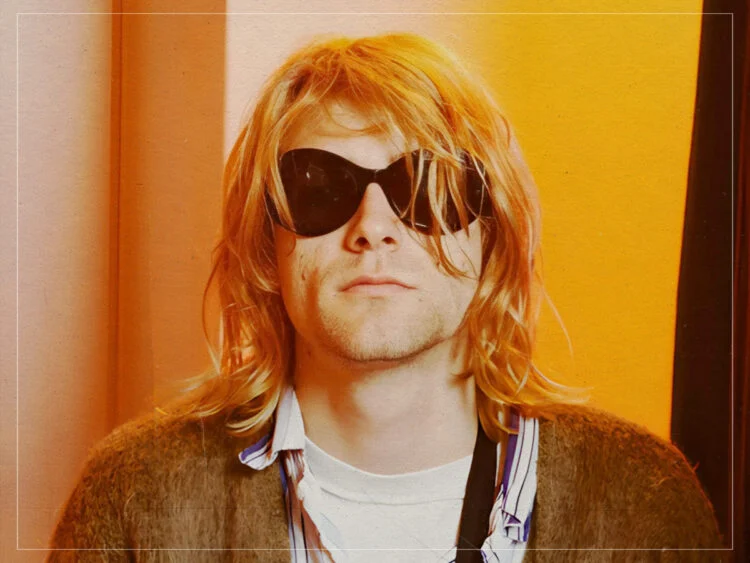Sometimes, no matter how personal the connection we may share with an artist, their death can hit us terribly hard. It might be that they expressed emotions we couldn’t dream of breathing, or simply that they represented a time in one’s life that now must be halted. But the death of a musician can sometimes hit harder than many would anticipate. Kurt Cobain‘s tragic death sent shockwaves around the world in 1994 when the frontman of Nirvana lost his battle with mental health and tragically took his own life.
At the time, Nirvana weren’t just grunge pioneers but the biggest band in the world. A group that not only seemed intent on reducing music back to its purest form following the hairspray revelry of the 1980s, but seemed ready to do so with a powerful message of morality, too. Nirvana were so much more than just a band.
For a whole generation, the trio, fronted by Cobain, stood for a feeling of disenfranchisement that seemed inescapable during the early parts of the 1990s. They had looked unstoppable, but the loss of their frontman would suddenly end their story. Without Cobain, there was no Nirvana, and making music was now the last thing on the minds of the remaining members.
Pat Smear had only joined the group in 1993 as a touring guitarist, but immediately slotted in triumphantly with their line-up and has been a fixture alongside Dave Grohl in Foo Fighters since their inception. Even though he only played with Nirvana for a small amount of time, he built up a special bond with Cobain, and the last phone call he received remains a vivid memory for Smear.
Smear’s band, The Germs, were heroes for Nirvana growing up, and it was a revelation to them that Cobain liked them so fervently. Cobain once said of the band: Given their connection, it made total sense to take up the opportunity to join the group, and Smear never looked back. Drummer Dave Grohl remembered of the moment Cobain confirmed the tri would now be a quartet: “Kurt comes back from Los Angeles and is like, ‘I found our second guitar player!’”
“It was an unexpected phone call from Kurt, and I jumped at it,” he recalled to Rolling Stone in 2012. “I was a fan, like everyone else. I had actually read an interview with them not too long before he called me, where he said Nirvana was always meant to be four people. I thought, ‘Wow, I want that.’ And then it happened.”
However, the dream of Nirvana was a contrast to reality, and the stresses of being in such a huge band weighed on their minds, especially Cobain’s. They were no longer just a band anymore; they were an institution that now needed to be making money for other people, which never sat right with Cobain, and the singer became exhausted while on tour.
“So Kurt decides that he wants a break, even though we are on this tour that you can’t get out of because you’re a big band, you get sued,” Smear explained in the Foo Fighters documentary, Back & Forth. During the break in their final tour, Grohl headed home, but Smear stayed in Europe and was in Rome when Cobain overdosed just a month before his death, with doctors pumping his stomach to make sure he stayed alive.
“I went to the hospital with him,” Smear remembered. “I didn’t know what to do, do I say this is Kurt Cobain, care for him right away, VIP. Or do I say it’s just some guy, don’t call the press. I finally went with this is Kurt Cobain, VIP, do something about it now.”
Smear helped get Cobain to the hospital that night and made sure that he got preferential treatment, which helped save him from death. Alas, while Smear made sure that Cobain survived this scare, only a month later, he would pass away in Seattle.
“It was really sad,” Smear remembers. “I had a message from Kurt, but I wasn’t home, so whatever help he needed for me, I couldn’t help him, and that’s the last time that I ever talked to him or saw him,” Smear emotionally adds. It’s a tragic feeling that anyone affected by the heartbreaking notion of suicide has felt: a helplessness that is impossible to shake or forget.
The clip shows that Smear still feels guilt about being out of the house, and missing that message is evident from the heartbroken tone that rings out of his voice. The whole experience surrounding Cobain’s death was a traumatic time for everyone involved, as they all questioned whether they could have done anything more to help him. Sadly, those question marks will hang heavily over the heads of all involved for some time.
